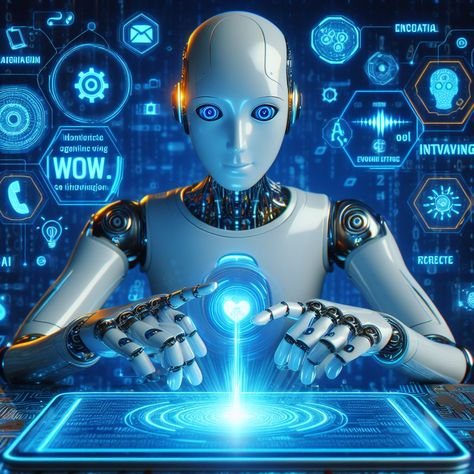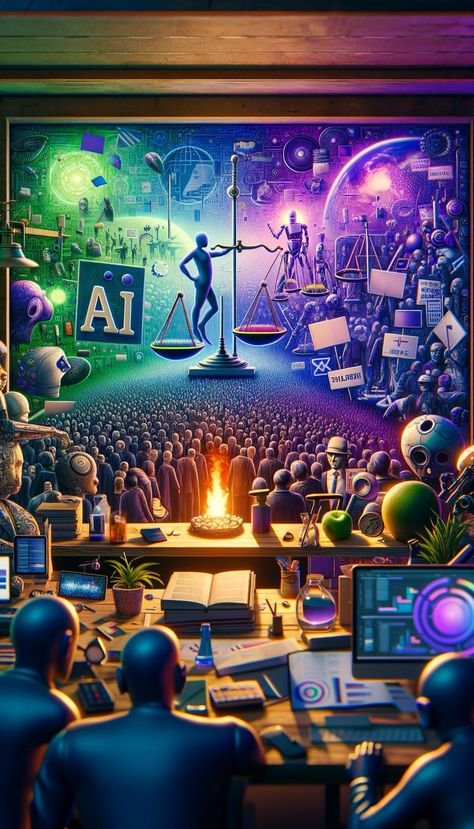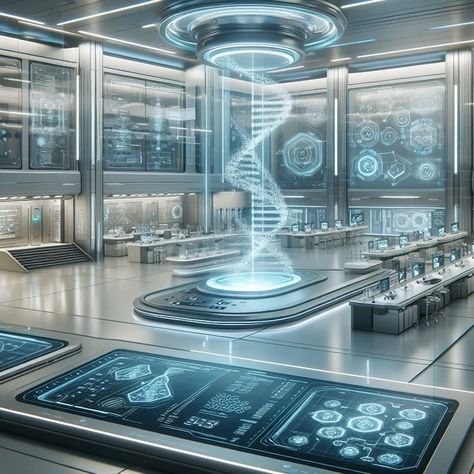Artificial Intelligence (AI) is transforming industries at an unprecedented pace, and the medical field is no exception. A significant point of discussion within the healthcare community is whether AI will replace lab techs entirely. This article explores the implications, potential benefits, and challenges posed by AI’s growing role in laboratory technology, addressing whether such advancements will complement or displace human professionals.
Table of Contents
How AI Is Revolutionizing Laboratory Work
AI has demonstrated remarkable capabilities in automating tasks traditionally performed by laboratory technicians. From analyzing blood samples to detecting abnormalities in imaging, AI algorithms excel at tasks requiring precision and speed. The integration of AI into laboratory workflows is reshaping the efficiency and accuracy of diagnostics, raising the question: Will AI replace lab techs in the near future?
Key Areas Where AI Excels in Lab Environments
- Automating Routine Processes
AI-powered machines are capable of performing repetitive tasks such as pipetting, sample sorting, and data entry. These technologies reduce human error and free up lab technicians to focus on more complex duties. This ability has led many to wonder if AI will replace lab techs for tasks that once required manual effort. - Data Analysis and Pattern Recognition
AI systems, using machine learning algorithms, can analyze vast datasets to identify patterns and insights that would take humans weeks or months to uncover. For instance, AI-driven software can identify rare genetic markers or predict disease susceptibility with higher accuracy, prompting speculation about whether AI will replace lab techs for analytical roles. - Real-Time Decision Making
Laboratories that implement AI systems benefit from real-time decision-making capabilities. AI can instantly process test results and flag abnormalities, streamlining the diagnostic process. With this advancement, many healthcare professionals are debating whether AI will replace lab techs entirely in diagnostic roles.
Will AI Fully Replace Lab Techs or Augment Their Roles?

Despite its impressive capabilities, AI is not without limitations. While some tasks can be automated, others require the nuanced judgment, ethical considerations, and adaptability that only human professionals can provide. Thus, while AI will replace lab techs in certain repetitive functions, a complete displacement is unlikely in the foreseeable future.
The Human Touch: Irreplaceable Skills of Lab Technicians
- Critical Thinking and Problem-Solving
Lab technicians possess the ability to troubleshoot issues, adapt to unique circumstances, and apply creative thinking to complex problems—skills that AI cannot replicate effectively. - Ethical Oversight
Laboratory work often involves sensitive data and ethical decision-making. While AI can process information, it lacks the capacity to understand moral implications, an area where lab techs excel. This gap makes it less likely that AI will replace lab techs in roles requiring ethical considerations. - Patient Interaction
Many laboratory technicians interact directly with patients, collecting samples and ensuring their comfort during procedures. AI lacks the empathy and interpersonal skills necessary for such tasks, further questioning whether AI will replace lab techs entirely.
Challenges of Relying Solely on AI in Laboratories
- Technical Errors and Limitations
AI systems, though advanced, are not immune to errors. Bugs in software, hardware malfunctions, or biased algorithms can lead to incorrect results, highlighting the need for human oversight. These issues complicate the narrative that AI will replace lab techs seamlessly. - Cost of Implementation
While AI technology can reduce long-term costs, its initial implementation requires significant investment in equipment, training, and maintenance. Smaller laboratories may find it challenging to adopt AI, ensuring the continued demand for lab technicians. - Ethical and Regulatory Hurdles
Integrating AI into healthcare involves navigating complex ethical and regulatory landscapes. Ensuring patient privacy and obtaining approvals for AI-driven diagnostics are challenges that question whether AI will replace lab techs without creating new layers of complexity.
The Collaborative Future: AI and Lab Technicians Working Together
Rather than viewing AI as a replacement, many experts advocate for its role as a collaborative tool that enhances the efficiency of lab technicians. By automating mundane tasks and providing advanced analytical support, AI allows lab techs to focus on innovation and patient care. This collaborative model challenges the notion that AI will replace lab techs, instead highlighting a synergistic relationship.
Real-World Examples of AI in Laboratories
- Pathology and Histology
AI-powered systems, such as deep learning models, are being used to analyze tissue samples for cancer diagnosis. While these tools enhance accuracy, they still rely on human pathologists for final verification, suggesting that AI will replace lab techs only partially in these areas. - Blood Testing Automation
Companies like Theranos have attempted to revolutionize blood testing using AI. Although controversies arose, advancements in this field show promise in automating certain aspects of laboratory work while retaining the need for skilled technicians. - Microbiology
AI has been deployed in microbiology labs to identify bacterial colonies and predict antibiotic resistance. Despite this progress, the complexity of microbial ecosystems ensures that humans remain an integral part of the process, making it unlikely that AI will replace lab techs entirely.
Educational Implications for Aspiring Lab Technicians
As AI becomes more prevalent, the skills required for laboratory technicians are evolving. Aspiring professionals must now acquire knowledge of AI tools, programming, and data analytics in addition to traditional lab skills. This shift supports the argument that AI will replace lab techs in some tasks, but also underscores the importance of upskilling to remain relevant.
Ethical Considerations in AI-Driven Laboratories

The integration of AI in laboratories raises ethical questions, particularly concerning job displacement. If AI will replace lab techs, what measures can be taken to ensure a smooth transition for affected workers? Additionally, ensuring AI systems are unbiased and transparent is critical to maintaining trust in diagnostics.
Public Perception and Trust in AI
For AI to gain widespread acceptance in laboratories, public trust must be established. Many patients and healthcare providers remain skeptical about the reliability of AI-driven diagnostics. This skepticism serves as a barrier to the narrative that AI will replace lab techs without resistance.
The Economic Impact of AI on Laboratory Jobs
While AI can create cost savings and efficiency, its adoption may lead to job displacement in certain roles. However, new opportunities will likely emerge in AI development, maintenance, and oversight, suggesting that the idea that AI will replace lab techs is more nuanced than it appears.
Also read Can an Adopted Child Have Positive Behaviors Like Tickling: Exploring the Dynamics
Conclusion: A Balanced Perspective on AI in Labs
The question of whether AI will replace lab techs is complex and multifaceted. While AI undoubtedly excels at automating repetitive tasks and enhancing diagnostic accuracy, it falls short in areas requiring human judgment, empathy, and ethical oversight. The future of laboratories likely lies in a collaborative model where AI and lab technicians work together to deliver superior healthcare outcomes.
Rather than fearing displacement, lab techs should embrace AI as a tool to amplify their skills and efficiency. By adapting to this evolving landscape, professionals can ensure that their expertise remains invaluable in the era of AI-driven healthcare.


